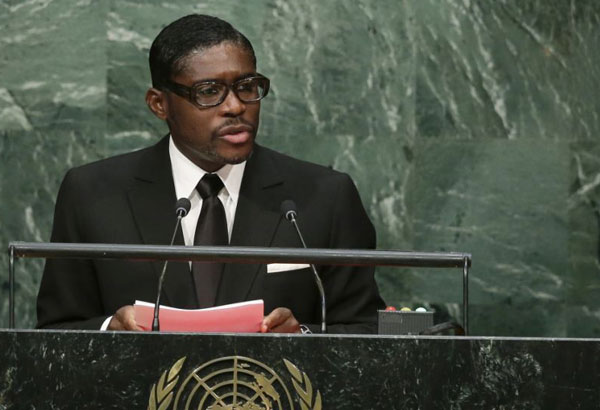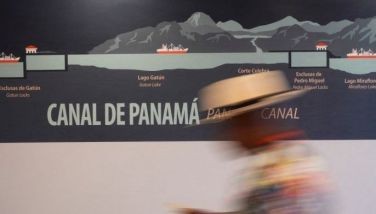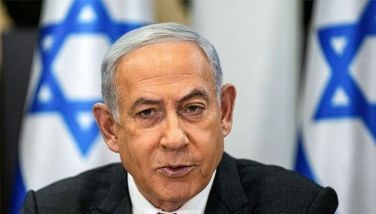France argues World Court has no jurisdiction in graft case

FILE - In this Wednesday, Sept. 30, 2015, Teodoro Nguema Obiang Mangue, Vice-President of Equatorial Guinea, speaks during the 70th session of the United Nations General Assembly at U.N. headquarters. A legal battle between France and Equatorial Guinea over the corruption prosecution of the African nation’s vice president is back before the International Court of Justice, months after a Paris court convicted the vice president. French lawyers on Monday Feb. 19, 2018 told judges that the court, the United Nations’ highest judicial organ, has no jurisdiction to rule in a 2016 case filed by Equatorial Guinea which argues that Teodoro Nguema Obiang Mangue has immunity from prosecution. (AP Photo/Frank Franklin II, File)
THE HAGUE — French lawyers on yesterday urged the International Court of Justice to throw out a case brought by Equatorial Guinea in 2016 seeking to prevent the prosecution in France — which has since happened — of the African nation's vice president on money laundering and other charges linked to his opulent lifestyle.
French representative Francois Alabrune told the Hague-based world court, the highest judicial UN organ, that Equatorial Guinea's attempt to invoke international conventions on diplomatic relations and organized crime as a way of giving the court jurisdiction were "wholly artificial."
The case in The Hague is going ahead despite the fact that a French court convicted Teodoro Nguema Obiang Mangue in October and handed him a suspended three-year prison term for embezzling millions in public money, which he spent on fast cars, designer clothes, art and high-end real estate. The French court also handed him a suspended fine of 30 million euros ($37 million) and ordered that all goods seized during the investigation should remain confiscated.
Obiang Mangue, who did not attend the Paris trial, denied the charges and his lawyer, Emmanuel Marsigny, accused France of meddling in Equatorial Guinea's domestic affairs. Obiang Mangue and French prosecutors have appealed, Alabrune told judges in The Hague.
Equatorial Guinea's case at the International Court of Justice, filed in 2016, argues that Obiang Mangue has immunity from prosecution because of his position as vice president.
At a preliminary stage of the case in The Hague, the world court ruled that it appeared to have jurisdiction based on the Vienna Convention on diplomatic relations. France's arguments on yesterday sought to convince judges that they do not. A decision will likely take months.
Equatorial Guinea is rich in oil and gas, but most of the country's population still lives in poverty.
- Latest
- Trending



























